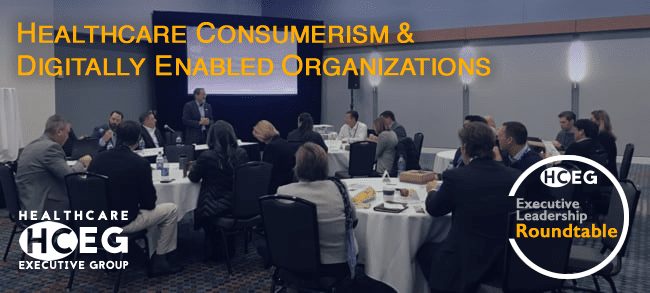
It’s no surprise to anyone working in healthcare that healthcare consumerism and digitally enabled organizations that support healthcare consumers and patients are top of mind for today’s healthcare executive leadership. Indeed, Total Consumer Health and The Digital Healthcare Organization are ranked #2 and #5 respectively on the 2019 HCEG Top 10 list of challenges, issues, and opportunities facing healthcare executives.
Immediately after AHIP’s 2018 Consumer Experience & Digital Health Forum (AHIP CDF) adjourned in Nashville, TN last month, HCEG hosted an Executive Leadership Roundtable (ELR) for approximately three dozen participants. Brian Lobley, President, Commercial and Consumer Markets at Independence Blue Cross and Stuart Hanson, Managing Director, Head of Healthcare Payments at JPMorgan Chase & Co chaired the ELR with HCEG’s Executive Director Ferris Taylor moderating.
Topics Discussed at HCEG’s Recent Executive Leadership Roundtable in Nashville, TN
As is the approach with all ELR’s hosted by the HealthCare Executive Group, the theme presented and the topics were aligned with and built upon the theme of the anchor event: Consumer Experience & Digital Health:
- Catalysts for Healthcare Consumerism
- Turning Passive Health Plan Members and Patients into Active Consumers
- How Value-Based Relationships Change How Healthcare Stakeholders Engage with Their Members and Patients
- Independence Blue Cross and JP Morgan Chase Perspectives on Member Engagement
- Impact of New Competition and Innovations on “Healthcare Consumerism”
This is the first post of a two-part series recapping the information, insight, and ideas shared during the nearly three-hour long executive leadership roundtable event held on December 13th, 2018.
Helping Simplify Healthcare Decisions
One theme throughout the 2018 AHIP CDF was that most compelling opportunities to improve healthcare lie in making the complex simple. In healthcare, there are simply too many transactions that add friction and create misery for the very people who can ill-afford to experience them. These transactions must be imbued with both humanity & simplicity.
Ferris Taylor kicked off the discussion by asking panelists:
What is being done now or can be done soon to help people understand their healthcare options?
Brian Lobley noted the importance and value of healthcare consumers working with and through their PCP or other physician(s) primarily responsible for providing their care. He noted that many primary care physicians will only work within their own healthcare system and will often not suggest any services from other providers outside that healthcare system – even if it were in the patient’s best interest clinically and/or financially. Brian went on to state that until consumers bear more of the cost there will not likely be any appreciable change
Discussion ensued that short benefit periods preclude most health plans or other risk-bearing organizations from investing in people’s health. Everyone seemed to agree that longer benefit periods or some way of sharing individual healthcare costs over a period of multiple years and perhaps across multiple payers would go a long way toward improving individual outcomes and lowering overall costs.
Integrating Services into Physician Workflow and Patient Life Flow
Roundtable participates agreed that in order to maximize consumer and patient benefit and to minimize physician burnout, diagnostic and therapeutic procedures must be intelligently integrated into physician/clinician workflow and the patient’s life-flow.
Physicians and patients simply don’t want to be told what to do but rather provide and obtain needed services as conveniently as possible and as part of their individual, respective day to day workflow and life-flow. As Ferris stated: ‘Make the right thing the easy thing to do!’
Democratizing Healthcare Decision-Making and Control to Consumers and Patients
ELR participant David Gallegos shared:
“Until healthcare is democratized, it’s going to be very hard for consumers to really take control. Right now, healthcare consumers really don’t have much choice because it’s the employers who choose the health plan and the employers who make all the contracting and payment decisions. Until consumers have more choice and can make more of the primary decisions, there won’t be any major improvement.”
Tipping Points to a Truly Consumer Driven Healthcare Industry
One roundtable participant asked:
“What are your predictions on what the tipping points are that would get us to the truly consumer-driven industry much like retail or other things?”
JP Morgan’s Stuart Hanson stated that consumers and employer groups are fed up and taking action on their own and not waiting for the government or health insurance plans to address high costs and inconsistent outcomes:
“I think we are there now with the current member populations of most health plans. Consumers are fed up. They’re asking their physicians harder questions. They’re challenging how their health plans adjudicate claims. They’re actually reading their EOB’s and trying to understand them. And now employer groups are demanding change.”
“But the industry has not adapted to employer and member demands so that’s why there are employer-driven initiatives like the Comcast-IBX initiative and the Amazon Berkshire Chase consortium that are driving employer-based change.”
Stuart and Brian went on to share information and insight on two nascent employer group consortiums they are each involved with:
- The Amazon Berkshire JP Morgan Chase initiative dominating the healthcare news cycle over the past year and…
- The 50/50 joint venture between the parent company of Brian Lobley’s Independence Blue Cross, Independence Health Group, and Comcast.
Healthcare – Particularly Pharmacy – is a Huge and Growing Expense
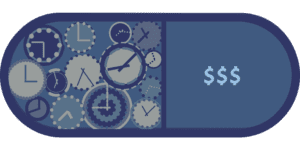
Stuart shared that, after salary and facilities (rent), healthcare is the 3rd largest expense for most employers. And that pharmacy is the largest and fastest growing part of overall healthcare expenditures. Brian noted that big pharma, and specialty drugs in particular, will eventually sink U.S. healthcare if pharmacy costs are not addressed soon.
The idea that a single payer or ‘Medicare For All’ movement can solve America’s healthcare crises was floated. Brian noted that many people fail to realize that these approaches are still based on a combined government-private solution and that many of today’s cost and outcomes challenges will not necessarily be fixed.
Increase in Home-based Care – Opening Opportunities for Non-Traditional Providers
As the home becomes more accessible physically and virtually via new technologies like voice, home-based medical and non-medical services provided in the home will help accelerate the tipping point. Brian pointed to the recent purchase of GreatCall by Best Buy and his own company’s partnership with Comcast. There was general agreement that the access that Best Buy’s Geek Squad and Comcast’s CATV installers have to the residential market offer great potential to engage with and influence healthcare consumer behavior.
Questions from Healthcare Leaders Participating in HCEG’s Executive Leadership Roundtable
Our roundtable events are free-flowing discussions and the eventual direction of each roundtable event is often dictated by where attendee interaction takes us. And participants at our ELR did ask questions and participate without being prodded:
Who do you think is the next Kodak in the Healthcare Industry?
ELR participant Dr. Kyra Bobinet, MD asked panelists: ‘Who do you think the next Kodak will be in the healthcare space?’
Stuart responded: “Health plans” and noted how there used to be 100+ BCBS health plans and now there are less than 40.
And Brian added: “Hospitals” and noted that there are way too many beds available and hospital facilities and real estate holdings are huge expenses. And the movement of more home-based care is only exacerbating this shift in care settings.
Where do you see benefit design going to actually support true prevention?
Participant Kristen Valdes, CEO of b.well, raised the topic of more and more employer groups wanting to offer preventive and other services that are not often available in many health plan benefit packages. Kristen shared:
‘We are seeing employers in our market wanting to pay for true prevention and we’re having to create programs. Employers are willing to pay (for preventive services) outside of their medical benefit.’
Kristen also noted that more healthcare organizations are offering their members and patients the opportunity to undergo genetic testing as part of a routine primary care visit. Increasingly, analytics are able to interpret these test results in terms of identifying the total cost of an individual based on providing care or not providing care.
The vision is that these services will provide physicians with relevant information to inform personalized treatment decisions for their patients, such as offering preventive steps to patients at risk for hereditary conditions.
Brian Lobley shared his opinion that the healthcare industry is a ways away from more widespread use of genomic and related testing because many individuals are afraid to use these tests based on a fear that the results may be used against them. Several participants shared that they find it hard to believe that someone will allow themselves to be exposed in terms of what their genomic testing reveals about their potential cost of care.
Why Have Health Plans, Physicians and Provider Organizations Not Partnered to Go Against Big Food?
Cate McConnell, Healthcare Change Leader at Appian, questioned why traditional healthcare constituents have not organized to lobby and make attempts to change the negative effect that many of the foods consumed in America have on an individual’s healthcare.
While no one offered an explanation, one participant did reference a recent article claiming that ‘gut health’ can be more important than ‘heart health.’ And Dr. Kyra Bobinet shared that nutrition and proper food choices are her passion and that anyone interested in learning more could reach out to her for more information.
Your Disease Does Not Define Who You Are
To illustrate the importance of how most people view their healthcare status and need, Ferris Taylor shared a description of one’s healthcare state does not define them:
“My wife has diabetes but she isn’t a diabetic. She’s a mother. She’s a grandmother. She sings in a choir. She has a life. She’s in the community. She wants to deal with that one element of her life but get on with all the rest of her life.”
The Four Constituents of Well-Being
In response to Ferris’s share that the state of our health does not define who we are as individuals, Dr. Kyra Bobinet shared that scientific studies have shown that four primary constituents rooted in neural circuits have a significant influence on our well-being:
- Resilience: the rapidity with which we recover from adversity; some people recover slowly and other people recover more quickly.
- Outlook: the ability to see the positive in others, the ability to savor positive experiences, the ability to see another human being as a human being who has innate basic goodness.
- Attention: the ability to voluntarily bring back a wandering attention over and over again is the very root of judgment, character, and will.
- Generosity: altruistic behavior activates circuits in the brain that are key to fostering well-being.
Kyra shared that practicing these four skills can provide the substrate for enduring change, which can help to promote higher levels of well-being in our lives. Turns out, well-being is a skill that can be practiced and strengthened.
More About Healthcare Consumerism & Digitally Enabled Organizations
In the second post recapping our Executive Leadership Roundtable, we’ll share insight and ideas on the following topics that were presented and discussed:
- How social determinants of health are becoming a driver of consumer health business objectives
- Three steps for jump starting digital transformation
- What was not addressed at the AHIP CDF that participants thought should have been addressed
- ELR participant responses to certain statements and claims during the AHIP CDF
In the meantime, consider subscribing to our eNewsletter, follow up on Twitter where we share as @HCExecGroup and join us on LinkedIn.
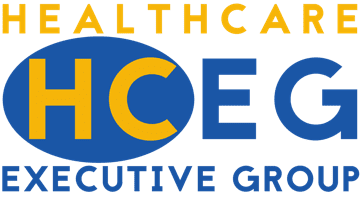

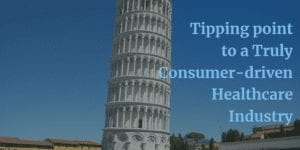



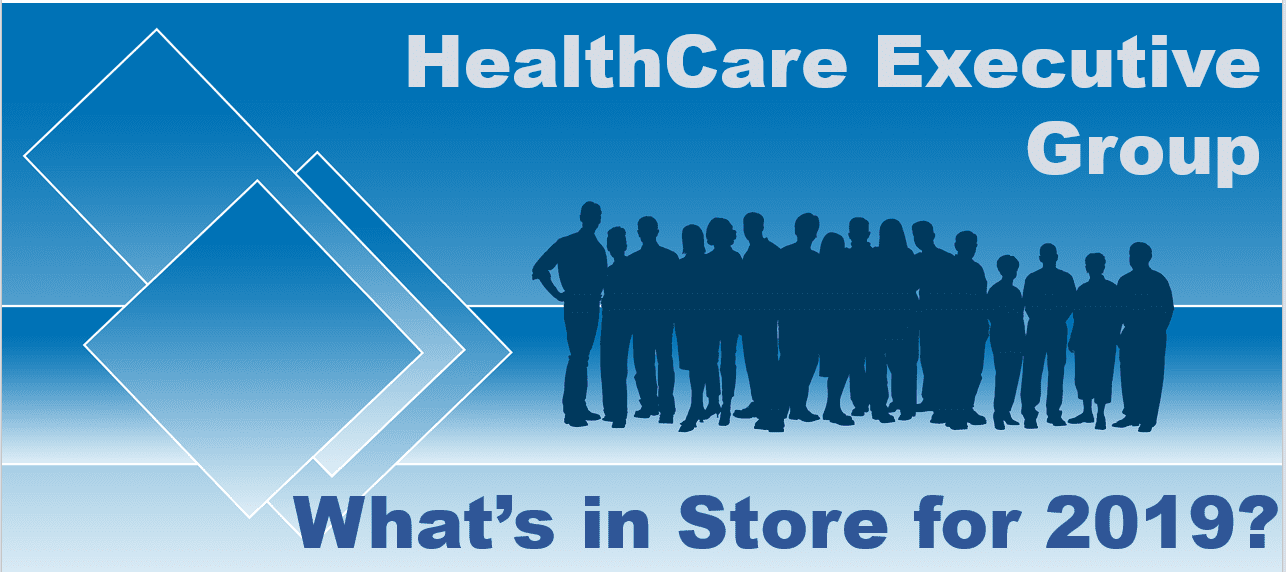

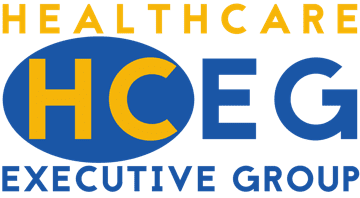
[…] our blog post – Leaders Share Insight on Healthcare Consumerism & Digitally Enabled Organizations – to learn about the following topics discussed at our […]
[…] Leaders Share Insight on Healthcare Consumerism & Digitally Enabled Organizations […]